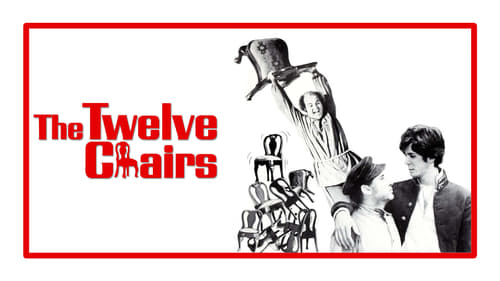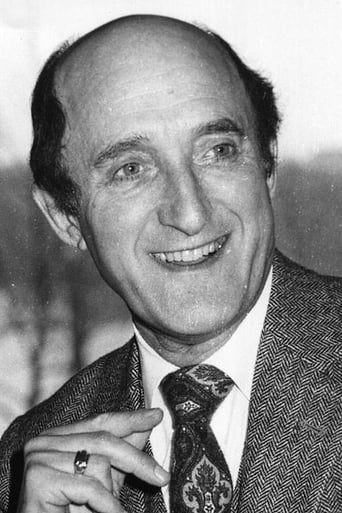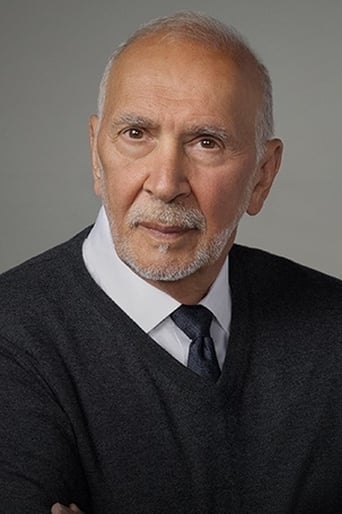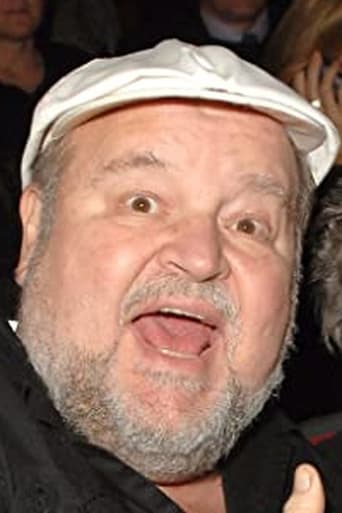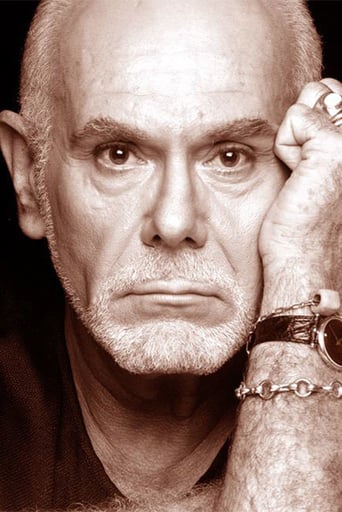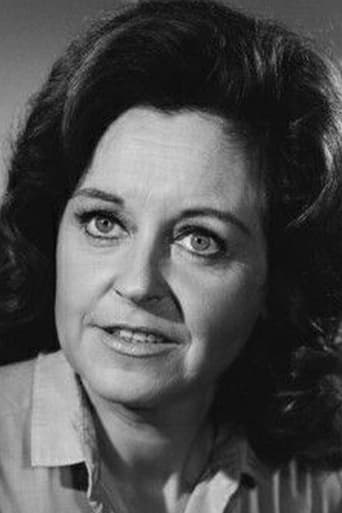Stoutor
It's not great by any means, but it's a pretty good movie that didn't leave me filled with regret for investing time in it.
ThedevilChoose
When a movie has you begging for it to end not even half way through it's pure crap. We've all seen this movie and this characters millions of times, nothing new in it. Don't waste your time.
Aubrey Hackett
While it is a pity that the story wasn't told with more visual finesse, this is trivial compared to our real-world problems. It takes a good movie to put that into perspective.
Sarita Rafferty
There are moments that feel comical, some horrific, and some downright inspiring but the tonal shifts hardly matter as the end results come to a film that's perfect for this time.
jadflack-22130
The second film that Mel Brooks directed after " The Producers" (1968)and this is loved by some and scorned by others. Put me in the line of scorners.There are laughs here, but there is a long gap between them,and film just seems to run out of ideas.Cast can't save it and just resort in the end to shouting and making other stupid noises. A poor comedy, at least better things were to follow.
brando647
I purchased a boxed set of Mel Brooks' biggest hits because I'd somehow gone more than thirty years without watching BLAZING SADDLES and YOUNG FRANKENSTEIN, and among the titles I was unfamiliar with I found THE TWELVE CHAIRS. This movie stands out from the rest because it wasn't the sort of Brooks film I'd come to expect. Brooks is obviously known for his screwball comedies and parodies, but THE TWELVE CHAIRS doesn't fit the bill for either. It's still a comedy but it's not the usual slapstick, meta-humor. It's a very straightforward comedy narrative based on a piece of Russian literature. It tells the tale of a former Russian aristocrat named Ippolit Vorobyaninov (Ron Moody) whose family lost everything with the rise of the Soviet Union. When his mother-in-law dies, she reveals that she'd hid her stash of valuable jewels in the upholstery of one of their twelve dining chairs for safekeeping. Unfortunately those chairs have long since lost to the Soviet government, but that isn't enough to dissuade Vorobyaninov and he returns to their former home to track them down. He's forced to team with a wandering conman named Ostap Bender (a young Frank Langella in his first big screen role) and the two of them race to find the chair before a corrupt priest (Dom DeLuise), who learned of the jewels from the dying mother during her final confession, can find them for his own selfish gains. It's a buddy comedy/road movie through the poverty-stricken post-revolutionary Soviet Union.Honestly, there's nothing truly amazing to make THE TWELVE CHAIRS stand out but it's still a well-constructed, funny movie and perfect viewing for a quiet afternoon when you aren't looking for anything too heavy. It's funny enough to keep the movie solidly entertaining for its breezy ninety minute running time but there aren't really any particular characters or moments that are all that endearing or memorable. Vorobyaninov is our main character and he's somewhat sympathetic as a man trying to regain his former glory but he's also vehemently selfish and borders on psychotic at times. All in good fun, of course. It was never his money to begin with and his former rich life was the result of his wife's family fortune, but he goes full blithering lunatic when the prospect of someone else finding that fortune is threatened. He only accepts the companionship of Ostap, the most identifiable of the characters from the audience perspective, because Ostap threatens to turn the information on the jewels into the government if he's left out. Ostap is certainly looking out for number one but he's also honest (as much as necessary) and trustworthy; he just wants the chance to escape his own meager existence of scrounging to survive. If he has to extort that chance out of Vorobyaninov to do so, he'll do it but he'll also be true to his word. Langella makes Ostap a charming rogue; he's got the air of a swashbuckler and the swagger of James Bond…a strong start for Langella's career.The plot is pretty simple. We travel with Vorobyaninov and Ostap as they track down each of the twelve chairs in search for the one holding the jewels, cheating, stealing, and bribing their way. Hot on their trails is Dom DeLuise as Father Fyodor, who is the more traditionally cartoonish character we expect from a Brooks film. He's never really a threat to their success (since he gets sidetracked on a wild goose chase from nearly the beginning) but he's got some of the funniest scenes. Mel Brooks also pops into the film for a quick in-and-out cameo as Vorobyaninov's drunken, sycophantic former servant Tikon, giving him the chance to steal the spotlight for a moment with his larger-than-life style. I really don't know what else to promote for THE TWELVE CHAIRS because, as I mentioned, it's a pretty straightforward affair carried by fun performances from the three main leads. I suppose people with interest in Russian literature will get that extra kick of seeing the story from Ilya Ilf and Yevgeni Petrov brought to the screen again. I'm not one of them. I'm not familiar with the authors and my knowledge of life in Soviet Russia is pretty limited, but some of the movie's themes (the "joys" of life in the rise of communism, embracing one's station in life and rising to challenges) shine through regardless. I might've preferred my new boxed set include THE PRODUCERS but THE TWELVE CHAIRS was certainly a pleasant surprise as a Brooks fan.
SnoopyStyle
It's 1927 Soviet Union. Ippolit Vorobyaninov (Ron Moody) is a poor Russian aristocrat who is told by his dying mother-in-law that she hid her jewels in one of her twelve chairs which are now gone. Ostap Bender (Frank Langella) is a con-man from the streets. He befriends Tikon (Mel Brooks) and then bullies his master Ippolit into joining him in his search. The priest Father Fyodor (Dom DeLuise) brought in to give the Last Rites also tries to find the chairs.It's a satire based on Ilf and Petrov's "The Twelve Chairs". The film has a bit of slapstick and a bit of stinging rebuke of the communist system. It's not as vulgar as his later works. That's probably due to the need to follow the source material. It does lack a good rooting interest. Frank Langella is not a fun con-man. His intensity doesn't allow the comedy to flow easily. He's a serious actor and not really a comedian. This is interesting with a few good chuckles.
MartinHafer
A week ago, I saw the Cuban version of "The Twelve Chairs" and assumed it was the first version of the famous Ilf and Petrov novel. However, I researched a bit and found that there are at least two other versions out there--and possible more. In the 1930s, there was a Czechoslovakian filming of the story (the first) and then a British version as well. I also learned that all of these versions are different and not so bleak as the original story--a story where one of the partners in crime KILLS the other--only to learn that the jewels are not in any of the chairs. I could see how this version would be better for Soviet propaganda--but funny, no way. So the movie versions apparently have a more innocent and funnier slant--a good idea if you ask me.This Mel Brooks version is quite different from the Cuban one--much more slapstick, more cinematic and possessing much more energy. In fact, the lack of energy was my biggest complaint about the Cuban film. For a comedy, it was just too retrained. Here in the 1970 version, however, the opposite is true--at times the story has a bit too much energy and relies a bit too much on slapstick. For example, during a few scenes Brooks does something I HATE--speeds up the camera to indicate it's a funny scene. However, if it's funny, let it be funny on its own merit--don't do cheap camera tricks. Also, while adding a new character to the story was not necessarily a bad idea, Dom DeLuise's priest was, at times, over the top and didn't fit with the mood set by the rest of the film. Eliminating the camera tricks and keeping DeLuise under control would have improved the film immensely. Also, keeping Brooks out of the film completely wouldn't have hurt, either. I loved his writing and directing, but his best films had him barely in them (such as "The Producers" and "Young Frankenstein").Now I have criticized the film quite a bit--but there is a lot to like and I think it's one of Brooks' better films. The most obvious plus in the film was the wild and crazy performance by Ron Moody. Because Moody had many quiet and restrained moments, his crazy scenes worked well. For example, while a generally restrained man, seeing him, out of the blue, climb up the pole to the high wire was hilarious. And, a few other times when he lost control, couldn't help but smile. RESTRAINT and selective craziness was what made him a joy to watch.I also respected the nice location shoot in Yugoslavia. It could have been made in the States but filming in a locale more like the USSR helped--and there was no way the Soviet Union would have allowed the film to be made there considering the state of US-USSR relations at the time. The color cinematography and locations shoots were nice.I was surprised, but Brooks' song "Hope For The Best, Expect The Worst" was also a wonderful song. It was catchy, summed up the film well and I found myself humming it after the movie was over.Finally, I liked the relationship between Moody and Frank Langella--particularly at the end of the movie. Going for a sentimental ending with some pathos was a great idea--and ending it like the novel would have been just awful.Overall, while I am sure many would disagree, I think that apart from "The Producers" and "Young Frankenstein" this was Brooks' best film. There is a likability and subtle (at times) that you just never see in his later films...and I like this and find it endearing. Too bad his films became progressively goofier and self-indulgent.

